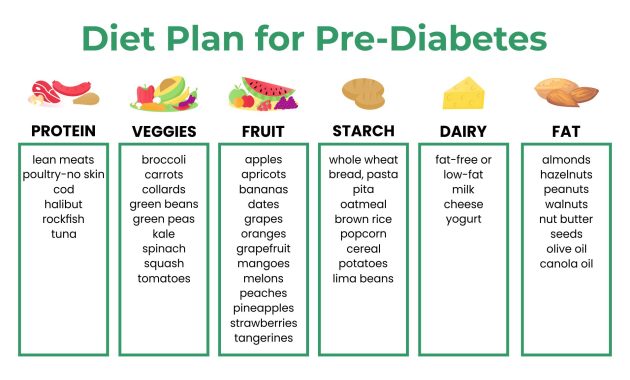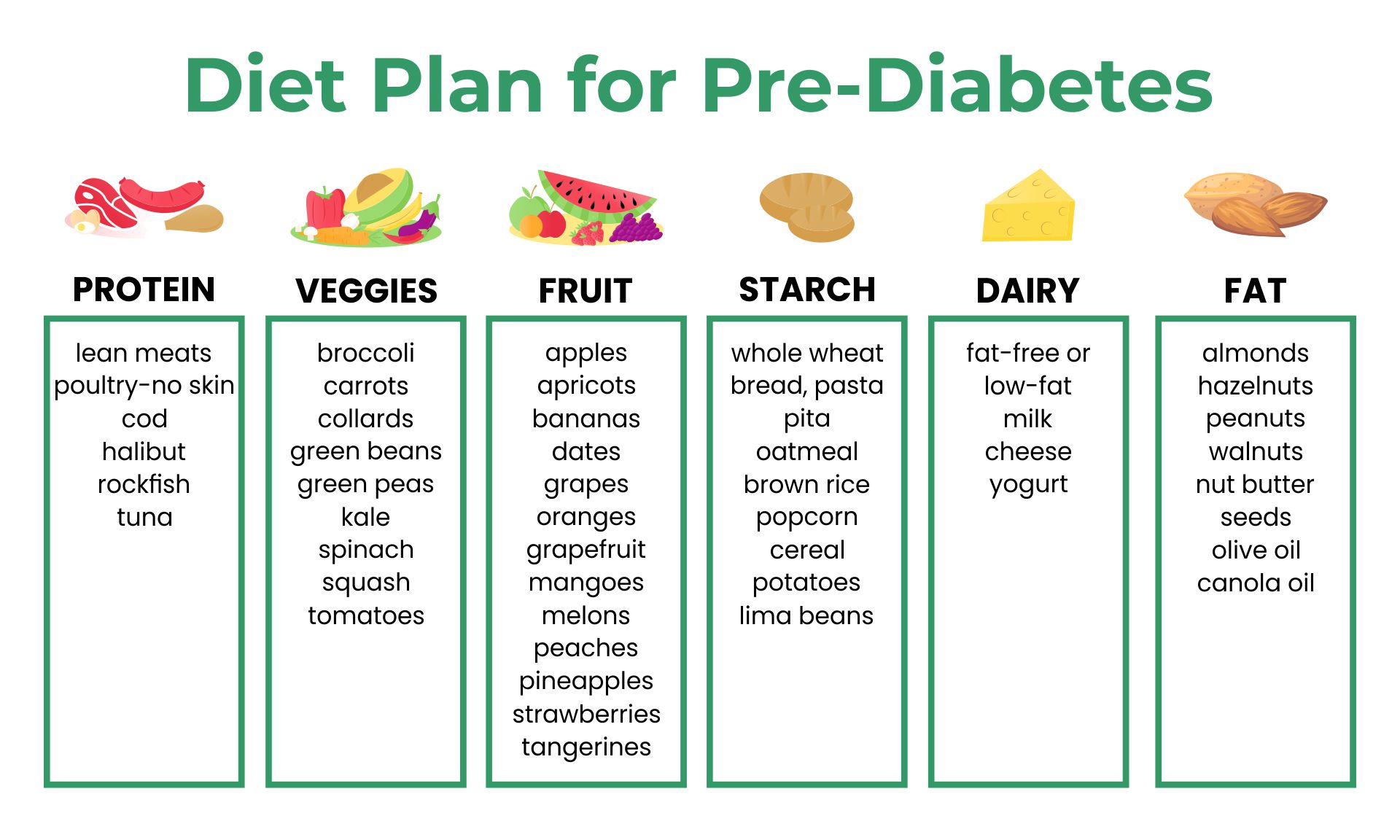
Diabetes Diet Hacks That Really Lower Your Blood Sugar
Managing diabetes is a complex journey. It requires a multifaceted approach. Diet plays a pivotal role in blood sugar control. Many people with diabetes seek effective strategies. They want to lower their blood sugar levels. This article explores diabetes diet hacks. These hacks can significantly improve blood sugar management. We will delve into practical tips. These tips are evidence-based and easy to implement. This guide aims to empower individuals. It offers actionable steps. These steps help to maintain optimal health. They are particularly crucial for those with diabetes.
Understanding the Role of Diet in Diabetes
Diet is not merely about what you eat. It’s about how it affects your body. For those with diabetes, this is especially true. The food you consume directly impacts blood sugar. It also affects insulin sensitivity. Carbohydrates are the primary culprits. They break down into glucose. This glucose enters the bloodstream. People with diabetes struggle with this process. Their bodies either don’t produce enough insulin. Or their cells resist insulin’s effects. This leads to elevated blood sugar levels. A well-planned diet can stabilize blood sugar. It can also reduce the risk of complications. These complications include heart disease and nerve damage. Understanding this link is the first step. It helps in making informed dietary choices.
Prioritizing Low-Glycemic Index Foods
The glycemic index (GI) is a crucial tool. It measures how quickly a food raises blood sugar. Low-GI foods are digested slowly. They cause a gradual rise in blood sugar. This is ideal for people with diabetes. High-GI foods lead to rapid blood sugar spikes. This can be detrimental to health. Focus on incorporating low-GI foods into your diet. These include non-starchy vegetables. Examples are leafy greens and broccoli. Also include whole grains like oats and quinoa. Legumes such as lentils and beans are also beneficial. These foods provide sustained energy. They also minimize blood sugar fluctuations. They also keep you feeling full for longer. This aids in weight management.
Mastering Portion Control
Even healthy foods can impact blood sugar. This is especially true if consumed in large quantities. Portion control is a key element in diabetes diet. It helps manage blood sugar levels. Use measuring cups and spoons. This helps to accurately assess food portions. Be mindful of serving sizes when eating out. Use smaller plates at home. This can trick your mind into eating less. Focus on balanced meals. Include protein, healthy fats, and carbohydrates. This combination helps to slow down digestion. It also prevents blood sugar spikes. Regular monitoring of blood sugar levels. This helps to understand the impact of different portion sizes.
Embracing Fiber-Rich Foods
Fiber is a nutritional powerhouse. It plays a significant role in diabetes management. There are two types of fiber. Soluble fiber slows down sugar absorption. Insoluble fiber aids in digestion. Both types are beneficial for blood sugar control. Include fiber-rich foods in every meal. Good sources include fruits and vegetables. Also include whole grains and legumes. Fiber also promotes satiety. It helps you feel full. This can prevent overeating. It also aids in weight loss. Fiber also supports gut health. This in turn can improve overall health. Aim for at least 25-30 grams of fiber daily.
The Power of Protein and Healthy Fats
Protein and healthy fats are essential nutrients. They play a vital role in diabetes diet. Protein helps to slow down carbohydrate absorption. It stabilizes blood sugar levels. Protein also promotes muscle health. It also helps with weight management. Choose lean protein sources. These include fish, poultry, and beans. Healthy fats are equally important. They improve insulin sensitivity. They also reduce inflammation. Include sources like avocados and nuts. Also include olive oil and fatty fish. These fats provide essential nutrients. They also contribute to overall health. Balance your meals. Combine protein, healthy fats, and carbohydrates. This creates a stable blood sugar profile.
Strategic Carbohydrate Counting
Carbohydrates have the most significant impact on blood sugar. Carbohydrate counting helps to manage this impact. It involves tracking the grams of carbohydrates you consume. This helps you to plan your meals. It also helps to manage your insulin dosage. This is particularly important for those on insulin. Learn to read food labels. Pay close attention to the carbohydrate content. Use a carbohydrate counting guide. This helps to understand portion sizes. Work with a registered dietitian. This helps to develop a personalized carbohydrate plan. This plan suits your needs and lifestyle. Regular monitoring of blood sugar levels. This helps to fine-tune your carbohydrate intake.
Hydration and Its Impact
Water is essential for overall health. It also plays a crucial role in diabetes management. Staying hydrated helps to regulate blood sugar. It also supports kidney function. Dehydration can lead to elevated blood sugar levels. It can also worsen diabetes complications. Drink plenty of water throughout the day. Aim for at least eight glasses. You can also include other hydrating beverages. Examples are herbal teas and unsweetened beverages. Avoid sugary drinks. These can cause rapid blood sugar spikes. Carry a water bottle. This reminds you to drink water consistently. This improves your overall health.
The Importance of Regular Meal Times
Establishing a consistent eating schedule is essential. This is important for managing blood sugar. Regular meal times help to regulate your body’s insulin response. They also prevent blood sugar fluctuations. Eat meals and snacks at the same times each day. This helps to maintain stable blood sugar levels. Avoid skipping meals. Skipping meals can lead to overeating later. It can also cause blood sugar imbalances. Plan your meals in advance. This helps to stay on track with your eating schedule. This also ensures you always have healthy options available. Consistency is key. This makes managing diabetes easier.
Mindful Eating and Its Benefits
Mindful eating is about paying attention to your food. It focuses on the experience of eating. It helps to make healthier food choices. It also prevents overeating. Before eating, take a few deep breaths. This helps you to relax. Pay attention to the taste, texture, and smell of your food. Eat slowly and chew your food thoroughly. This allows your body to register fullness. Avoid distractions while eating. This helps you to focus on your meal. Mindful eating can improve your relationship with food. It can also lead to better blood sugar control. It can also promote overall well-being.
The Role of Exercise in Blood Sugar Control
Physical activity is an integral part of diabetes management. Exercise helps to improve insulin sensitivity. It also lowers blood sugar levels. It also helps with weight management. Aim for at least 150 minutes of moderate-intensity exercise weekly. Activities include brisk walking and cycling. Incorporate both aerobic and resistance exercises. Aerobic exercise improves cardiovascular health. Resistance training builds muscle mass. This helps to improve insulin sensitivity. Monitor your blood sugar levels before and after exercise. This helps to understand how exercise affects your body. Consult with your healthcare team. They can create a safe exercise plan.
The Benefits of Stress Management
Stress can significantly impact blood sugar levels. It can cause your body to release glucose. This can lead to blood sugar spikes. Manage stress through relaxation techniques. These include yoga and meditation. Engage in hobbies. These can help you unwind. Ensure you get enough sleep. Sleep deprivation can increase stress. It can also negatively affect blood sugar control. Seek support from friends, family, or a therapist. This helps to manage stress effectively. Regular stress management can improve your overall health. It can also help you to manage diabetes.
Supplements and Their Potential Role
Certain supplements may help with blood sugar control. Always consult your doctor before taking any supplements. Some supplements that show promise include chromium and cinnamon. They may improve insulin sensitivity. Other supplements include alpha-lipoic acid and berberine. These may help with blood sugar regulation. Supplements should not replace a healthy diet. They should complement it. Monitor your blood sugar levels. Observe the impact of supplements. Discuss your observations with your doctor. This ensures safe and effective use.
Staying Consistent and Seeking Professional Guidance
Consistency is key to successful diabetes management. It is important to consistently follow your diabetes diet. It’s also important to practice other healthy habits. Work with a healthcare team. This includes a doctor, dietitian, and diabetes educator. They can provide personalized guidance. They can also monitor your progress. Attend regular check-ups. This helps to ensure your diabetes is well-managed. Stay informed. Learn about the latest diabetes research. This empowers you to make informed decisions. Remember, managing diabetes is a journey. It requires patience and dedication. It is also possible to live a healthy and fulfilling life. [See also: Related Article Titles]
These diabetes diet hacks can help lower your blood sugar. They offer practical strategies. They are also effective ways to manage diabetes. Implement these tips consistently. Combine them with regular exercise. Combine them with stress management. Combine them with professional guidance. This will improve your health. This also helps you to achieve better blood sugar control. Remember, consistency is key. Stay committed to your health. You can manage your diabetes effectively. You can also enjoy a better quality of life. Remember to always consult your healthcare provider. They can provide personalized advice.

